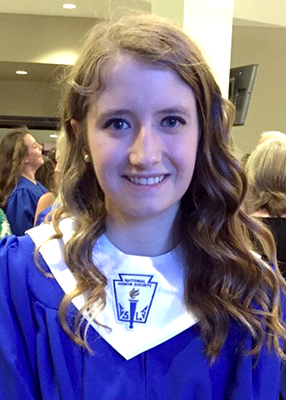
My name is Samsara, and I'm a junior double majoring in computer science and mathematics at the George Washington University. This summer I worked at the University of Maryland College Park at the Combinatorics and Algorithms for Real Problems (CAAR) Research Experience for Undergraduates (REU), funded by the National Science Foundation (NSF), in the Computer Science department. I worked on two artificial intelligence projects, advised by Professor John Dickerson.
The first was designing and implementing a system using deep reinforcement learning to learn optimal matching policies for kidney exchange in a dynamic setting. Specifically, I found and improved a graph embedding function to process directed, weighted graphs into fixed-sized vectors for input into a neural network that is invariant under graph isomorphism.
The second project was developing a system using reinforcement learning to ensure diversity and fairness in an automated admissions process. I analyzed past admissions data to investigate the possibility of bias in previous decisions.
I found out about CAAR and other math and computer science REUs from the NSF’s website. This summer validated my inclination towards theoretical computer science research and going to graduate school. I loved collaborating with peers and pursuing exciting, unsolved problems, teaching myself as I went. The computer science department hosted talks that were fascinating, and the quality of students and faculty involved in the REU was unparalleled.
While working at the REU, I learned two essential strategies for research. Though I had never taken courses in the subjects I was researching, I learned to hone in on the things I did not know, rather than feeling overwhelmed that I did not know so many things. Furthermore, I learned flexibility as a researcher. Sometimes promising directions hit dead ends, and knowing when to give up and move on was an important balance.
After the summer, I am continuing research with my advisor and pursuing my own online harassment research project under his guidance. I intend to work with him for the next two years of my undergraduate career. We submitted our first paper on the admissions process last week to a conference, so hopefully, I will attend. The kidney exchange paper is still in the works. In addition, I now have friends all over the country who will attend computer science graduate school programs at the same time as me.
I would highly recommend working at an REU to every undergraduate who has considered doing research, attending grad school, or simply loves learning about computer science or another topic related to computing. REU programs are generally very small so they are an excellent way to dive into computing research and gain knowledge about different fields. In addition, the director of my particular program was very accommodating to students with disabilities, so I would hope that other program directors would act the same.